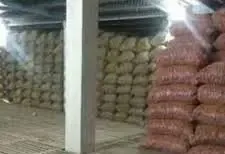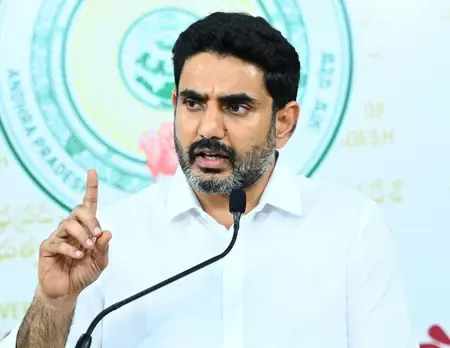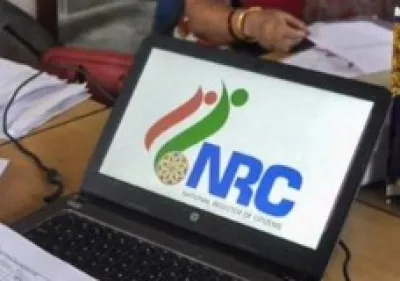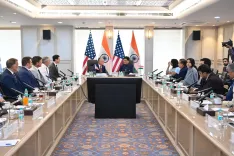West Bengal Allocates 30% Cold Storage Space for Smallholders

Synopsis
Key Takeaways
- 30% cold storage reserved for marginal farmers.
- Maximum storage allowance of 30 quintals per farmer.
- First come, first serve allocation process.
- Government response to storage complaints from smallholders.
- Proposal to purchase 30% of potatoes directly from farmers.
Kolkata, Feb 17 (NationPress) The government of West Bengal has mandated that all cold storage facility owners throughout the state must allocate 30 percent of their storage capacity for marginal farmers.
This initiative aims to alleviate the seasonal pressure faced by these farmers, particularly concerning the storage of their agricultural produce, especially potatoes.
An official directive has been communicated to all district magistrates to ensure that cold storage proprietors in their jurisdictions comply with this government mandate.
District magistrates are also expected to actively monitor and guarantee adherence to this order. Under this new policy, marginal farmers can store up to 30 quintals of potatoes, which is roughly equivalent to 70 sacks.
“Cold storage operators are required to maintain 30 percent of their space for marginal farmers during specified periods each season. If this reserved space remains unutilized after the designated timeframe, only then can the operators lease it to other clients. However, should the cold storage owners fail to rent out the vacant area post the specified period, they will not receive any state compensation. This decision was made in favor of the marginal farmers,” said a state secretariat official from Nabanna.
Marginal farmers who wish to utilize the reserved storage must submit an application along with necessary documents, such as Kisan Credit Cards and crop insurance papers. Storage space will be allocated on a first come, first serve basis.
An official highlighted that this measure was implemented in response to complaints from marginal farmers, who frequently found that cold storage spaces were pre-booked by larger agricultural producers.
A representative from the West Bengal Progressive Potato Traders' Association expressed support for the government's move, suggesting that the government should also consider purchasing 30 percent of the total potato yield directly from farmers.
“This strategy would benefit farmers, especially marginal ones, and help stabilize retail prices,” he remarked.









